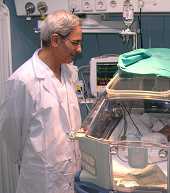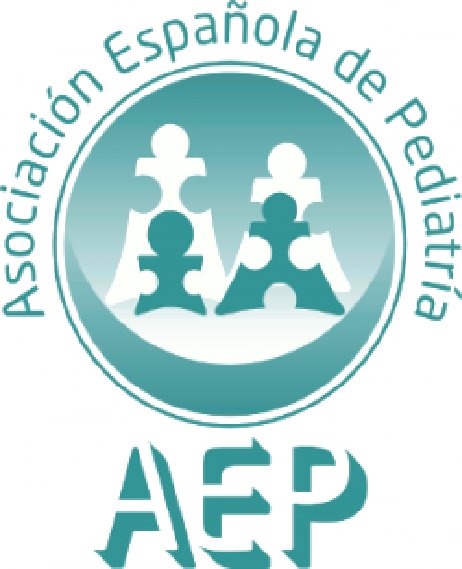El síndrome de Peutz-Jeghers es una rara enfermedad hereditaria, aunque se ha descrito hasta un 20 % de casos esporádicos. Clínicamente se diagnostica por la asociación de una pigmentación mucocutánea facial y la presencia de pólipos intestinales de tipo hamartomatosos. Entre los problemas asociados se describen las intervenciones quirúrgicas secundarias a los pólipos intestinales, así como la alta incidencia de desarrollo de tumores que presentan en la edad adulta.
Se presenta un caso de una niña de 10 años de edad, e historia de anemia rebelde al tratamiento, sin otros síntomas clínicos. El estudio demostró la presencia de pigmentación en la mucosa oral, así como la existencia de múltiples pólipos en aparato digestivo (estómago e intestino delgado). El estudio histológico de la biopsia intestinal confirmó la existencia de lesiones hamartomatosas. No existen antecedentes familiares conocidos de pigmentación o pólipos intestinales. En su evolución presentó un cuadro de invaginación intestinal que requirió practicar una resección limitada del intestino delgado.
Peutz-Jeghers syndrome is a rare hereditary disease, although in about 20% of patients there is no known family history. Its clinical hallmarks are facial mucocutaneous pigmentation and diffuse gastrointestinal polyposis of hamartomatous origin. The major difficulty in the management of this disease lies in the complications of surgery for small bowel polyposis and the high incidence of tumors presented by these patients as adults. We present the case of a 10-year-old girl with treatment-resistant anemia and no other clinical symptoms. Further investigation revealed pigmentation in the oral mucosa and polyposis in the stomach and small intestine. Hamartomatous lesions were confirmed by histological study of intestinal biopsy. No familial antecedents of pigmentation or intestinal polyps were found. During evolution the patient required subtotal resection of the small intestine due to invagination





